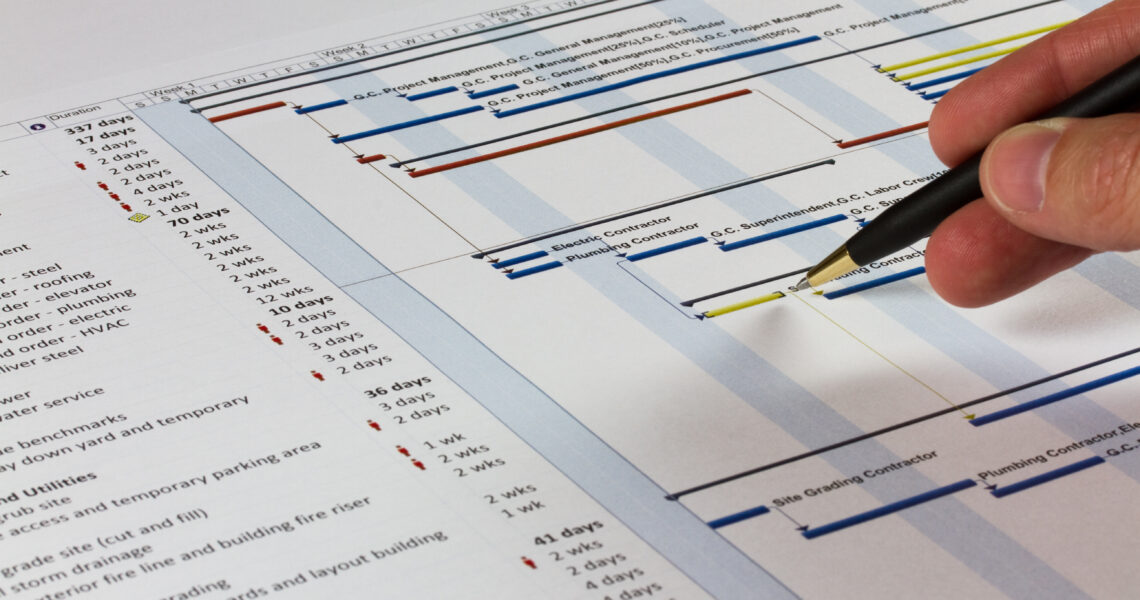Construction projects are complex endeavors that demand a delicate balance between various factors, including safety, quality control, and meeting deadlines. While adhering to project timelines is crucial for client satisfaction and profitability, it should never come at the expense of compromising safety or sacrificing quality. Striking this balance requires careful planning, effective communication, and the implementation of robust safety protocols and quality control measures throughout the project lifecycle.
- Importance of Safety in Construction: Safety should always be the foremost priority in construction projects. The construction industry is inherently hazardous, with risks ranging from falls and equipment accidents to exposure to hazardous materials. According to the Occupational Safety and Health Administration (OSHA), one in five worker fatalities occurs in the construction sector, highlighting the critical need for stringent safety measures (OSHA, 2022). Neglecting safety not only jeopardizes the well-being of workers but also exposes project stakeholders to legal liabilities, financial losses, and reputational damage.
- Implementing Comprehensive Safety Protocols: To prioritize safety without compromising project deadlines, construction firms must implement comprehensive safety protocols from the outset. This includes conducting thorough risk assessments, providing adequate training to workers, ensuring compliance with relevant safety regulations, and fostering a culture of safety across all levels of the organization. Utilizing technologies such as Building Information Modeling (BIM) and wearables for real-time monitoring can also enhance safety on construction sites (McGraw-Hill Construction, 2016).
- The Importance of Quality Control: Quality control is another critical aspect of construction projects that directly impacts safety, durability, and client satisfaction. Poor workmanship, substandard materials, and inadequate quality control processes can lead to costly rework, delays, and even structural failures. Maintaining high-quality standards requires meticulous attention to detail, adherence to industry best practices, and regular inspections throughout the construction process.
- Integrating Quality Control with Project Deadlines: While ensuring quality control may seem time-consuming, integrating it with project deadlines is essential for achieving successful outcomes. Investing in quality upfront can prevent costly rework and delays later in the project lifecycle. Employing lean construction principles, such as just-in-time delivery and continuous improvement, can help streamline processes and optimize efficiency without compromising quality (Lean Construction Institute, n.d.).
- Effective Communication and Collaboration: Effective communication and collaboration among project stakeholders are essential for balancing safety, quality control, and project deadlines. Clear communication channels facilitate the timely resolution of issues, alignment of priorities, and proactive risk management. Regular meetings, progress reports, and leveraging collaborative technologies can enhance transparency and coordination throughout the project.
- In conclusion, achieving a balance between safety, quality control, and project deadlines is paramount for the success of construction projects. By prioritizing safety, implementing robust quality control measures, and fostering effective communication and collaboration, construction firms can mitigate risks, enhance productivity, and deliver projects on time and within budget. Ultimately, upholding safety and quality should be non-negotiable principles that underpin every construction endeavor.
References:
- Occupational Safety and Health Administration (OSHA). (2022). Construction Industry Safety. Retrieved from https://www.osha.gov/construction
- McGraw-Hill Construction. (2016). Safety Management in the Construction Industry. Retrieved from https://construction.com/toolkit/reports/safety-management-in-the-construction-industry
- Lean Construction Institute. (n.d.). Principles of Lean Construction. Retrieved from https://www.leanconstruction.org/who-we-are/principles-of-lean-construction/





